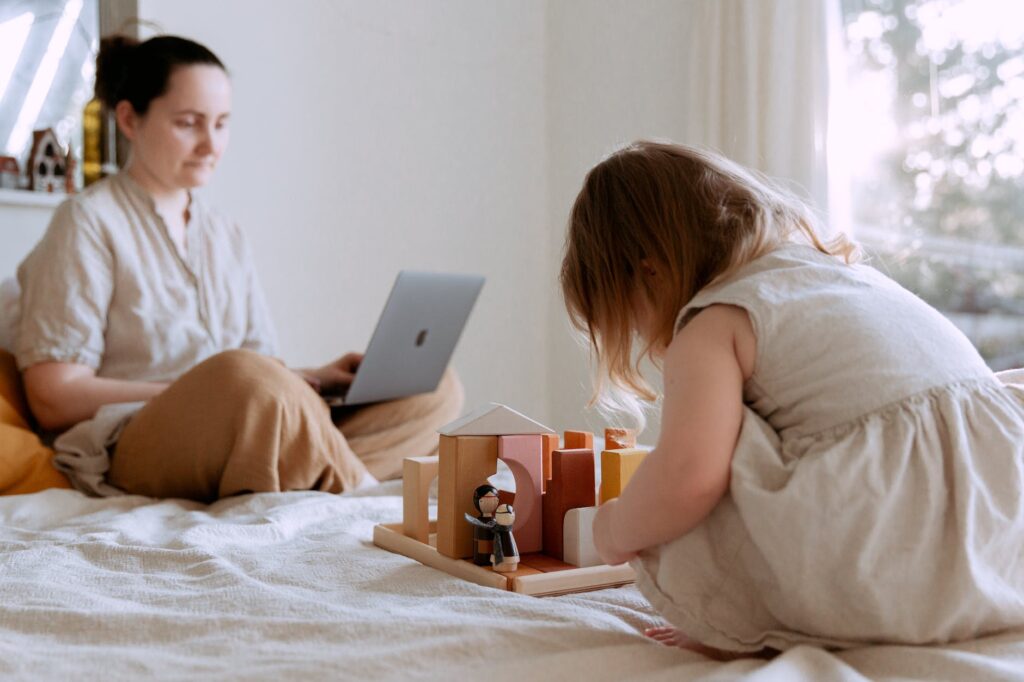It is not hard to teach your child to be independent, but it does not happen overnight. I wrote two blogs earlier this year on raising independent kids. Click here to read them – Teaching kids to self-serve and One simple thing you can do to raise independent kids. As parents, it is good to have goals for raising your child. It matters because it will determine what you focus on in your parenting efforts and where you put your energy.
What does it mean to be independent?
It is the ability to be self-sufficient in tackling daily life and having the confidence to do it in any situation, environment, and even home. Daily life can range from caring for your basic needs to solving unencountered problems. It also means knowing and identifying what your need is. Being independent also teaches your child to be disciplined and responsible.
Children acquire these skills in many ways –
- when they are taught explicitly
- when they observe behaviors
- when they are innately wired to have those qualities
In this post, I will be sharing what it looks like to teach these skills explicitly. It is not late to start, but here’s the catch – it requires consistency and years of teaching good habits and personal accountability. Don’t expect your child to demonstrate it in just a few weeks or months. My kids have had routines for years and know what to do when I say, “Go finish up your nighttime or morning routine.”
#1 Keeping Routines:
I’ve written much more about routines in the two blogs I shared earlier. It is the easiest way to teach children to take responsibility for certain aspects of their daily life. We have a morning and nighttime routine, and the kids know they must check those off before bedtime. Routines become habits when done consistently. That is the key. As parents, you need to expect the execution of the routines every day. There are days when our schedule is off, we’ve had a night out, or the kids are overstimulated. We then skip routines, but most days, we are consistent.
#2 Eating habits
We can teach our children to be independent with their eating habits. Here are a few things you can teach them to do
Teach them when to stop.
Regarding snack time, which is at 3 pm in our home, my kids know that they can have 1-2 items depending on the size of their choices. I do not have to serve them or make snack decisions for them. Teach them to serve themselves, grab their own glass of water, and to put away their plates and glasses when done.
Teach them about food choices
It is hard at a young age to expect them always to make good choices but teaching them to be aware is different. For example, if your child chooses a lollipop over strawberries, you can teach them that one is healthier than the other. Talk about the nutritional components of good food. Teach them to know what is considered fat, carbs, protein etc. They will remember these lessons and eventually start making good choices. I always remind my kids that egg and meat provide protein that grows muscles, which they need for swimming, gymnastics, and soccer.
Help them to eat independently
This is a hard one for me as well, but I try really hard. It requires making food easy to eat based on age, placing child-size portions on their plates, and being clear about the need to eat independently. It is tough with little kids and I experience the challenge with my two boys, who don’t eat much unless you feed them their plates. Sometimes, I allow them to walk away once they refuse to continue, and other times I’m willing to help them eat. Knowing when to step in and help is essential. Don’t do it if they can do it at that moment.
#3 homework is theirs to do
Many parents find themselves chasing after their children to complete their homework. There is nothing wrong with being involved. What is not ok is when your child will not get to it without you. Here are a few things you can do.
Routine
I will preach it till the sun goes down. Create a ROUTINE around it that has a snowball effect on other activities. Here’s an example of an evening routine for us
Take a shower – Eat a snack – playtime – Homework / afterschool – Viola Practice – Dinner
Offer incentives
It is entirely ok to incentivize and reward your child for being responsible. If you child gets to their homework without your involvement AND finishes it on their own (bonus), go ahead and reward them with things such as extra time to play outside, getting to choose the TV program first, giving them a little treat (lollipops are a rare thing in our home but make for a great incentive).
Dedicated space
Give your child a dedicated space to do homework that creates the mood and ambiance. We have a dedicated learning room in our home. When kids are smaller, it is easier to have them closer to where you are so you can support them when they need you.
Build Passion around learning
This may need its own blog post. My oldest is very independent about her homework. She is self-motivated to completes her work in a timely fashion. It comes from her obedience to teachers and discipline from our homeschool days, where she had to manage independent work. It also comes from having a passion for school. If your child does not have that passion, it is hard to see them independently prioritize homework and study time. Think about what makes them excited and make learning fun at home so they have the desire to learn and eventually come around to taking ownership of their learning.
#4 DO NOT CALL it a chore
As homemakers, we don’t call our daily responsibilities chores. I need to do the laundry, put away dishes, tidy up, cook meals, maintain the home, etc. These may be chores, but they are my responsibilities. The same needs to go with kids. The minute you label an expectation, it becomes an extra thing to do. My kids need to clean their rooms and make their beds in the morning, and my oldest needs to put away her laundry. It is part of life and is not a chore.
#5 involve them in homemaking
Assign a day or time of the week for “home maintenance.” This could include dusting, vacuuming, sorting laundry, etc. My boys love to help, and I love to get them involved. If you expect your child to do a job, give them the freedom to do it their way. My 5-year-old once made a big mess on the floor and offered to sweep. I let him do it, assuming I would have to do it once more to clean up what was left. When I got back, I was surprised at how clean a job he did. There was nothing left on the floor to clean. On that day, I learned never to underestimate what they can do.
final thoughts
All children are unique individuals with different capacities to learn life skills. Understand these and work with them as you develop independence in them. I hope you found this blog post helpful. Share this with friends and leave a comment below if you have other fun ways to teach independence at home.



